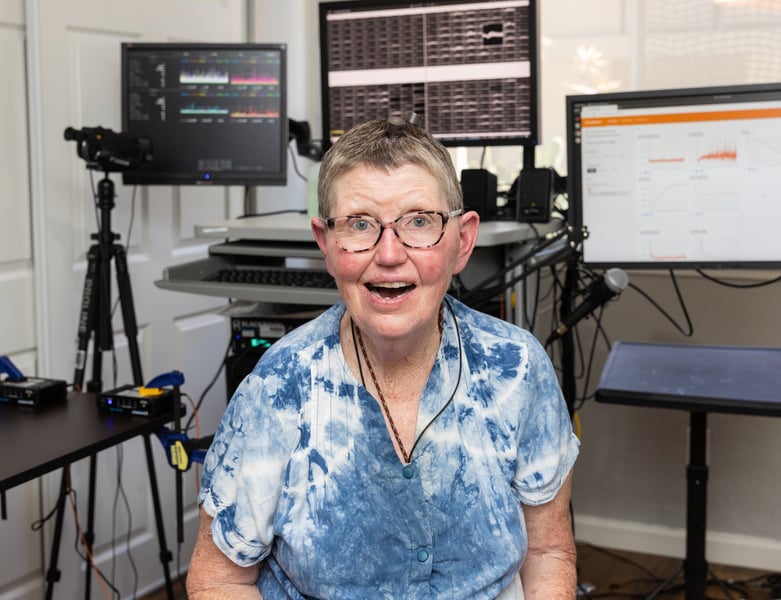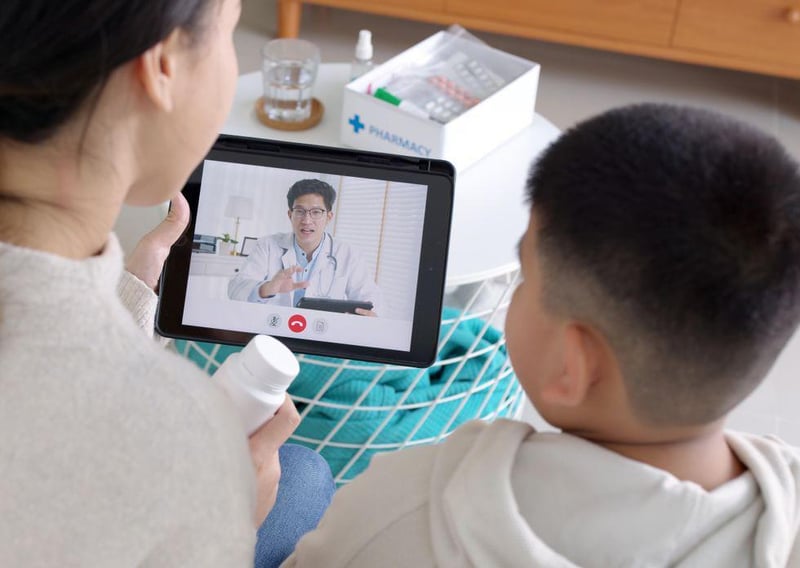Manténgase sano!
Resultados de su búsqueda "Speech Disorders".
Resultados de noticias de salud - 12
A bilingual brain implant has allowed a stroke survivor to communicate in both Spanish and English, scientists report.
Turning to an AI method known as a neural network, researchers trained the patient's implant to decode words based on the brain activity produced when he tried to articulate those words, and then display those words and sentences on a screen.
This method allows t...
- Robin Foster HealthDay Reporter
- |
- May 29, 2024
- |
- Página completa
Advanced brain recording techniques have revealed how neurons in the human brain work together to produce speech.
The recordings provide a detailed map of how people think about what words they want to say and then speak them aloud, researchers report in the Jan. 31 issue of the journal Nature.
Specifically, t...
- Dennis Thompson HealthDay Reporter
- |
- February 2, 2024
- |
- Página completa
Many people with Lou Gehrig's disease, also called amyotrophic lateral sclerosis (ALS), first start to lose the ability to move their arms and legs.
That's not Pat Bennett. She can move just fine. She can still dress herself, and she can even use her fingers to type.
But ALS has robbed Bennett, 68, of her ability to speak. She can no longer use the muscles of her lips, tongue, laryn...
- Dennis Thompson HealthDay Reporter
- |
- August 23, 2023
- |
- Página completa
About a third of children with autism aren't able to speak -- but that doesn't mean they're unable to listen and comprehend, a new study reports.
About 1 in 4 kids and teens who have autism and are minimally verbal understand significantly more language than they're able to produce, said lead researcher
- Dennis Thompson HealthDay Reporter
- |
- May 4, 2023
- |
- Página completa
Cutting-edge AI technologies that can detect subtle changes in a person's voice may help doctors diagnose Alzheimer's disease and other cognitive impairments even before other symptoms begin.
In a new study, researchers used advanced machine learning and natural...
- Cara Murez HealthDay Reporter
- |
- April 14, 2023
- |
- Página completa
Singing may help stroke patients regain communication skills, according to new research.
About 40% of stroke survivors have aphasia, a difficulty to deliver or comprehend spoken or written language. That impairment is ongoing for about half of those patients a year after their stroke, potentially affecting quality of life or leading to social isolation.
Researchers in Finland studie...
- Cara Murez HealthDay Reporter
- |
- January 3, 2023
- |
- Página completa
Babies' babble may be smarter than you think.
A new study shows that infants as young as 3- to 5-months of age can tell that the unintelligible sounds they make before they learn to talk can impact the people around them.
Traditionally, this babbling has been regarded simply as a byproduct of babies trying to work their mouths and exercise their voices. Instead, the new research sho...
- By Ellie Quinlan Houghtaling HealthDay Reporter
- |
- July 11, 2022
- |
- Página completa
The pandemic has dramatically disrupted kids' normal routines, but a new study suggests the initial lockdowns of 2020 did not necessarily hinder preschoolers' language development.
In fact, researchers found, there was an unanticipated "lockdown boost" in youngsters' vocabulary growth -- possibly because parents were spending more time at home.
Studying families in 13 countries, the...
- |
- February 9, 2022
- |
- Página completa
Dogs don't speak a human language, but they do know when you switch from one tongue to another, an intriguing new study finds.
"We know that people, even preverbal human infants, notice the difference," said study co-author Laura Cuaya of Eötvös Loránd University in Budapest, Hungary.
But, she wondered after taking her dog Kun-Kun from Mexico to Hungary for her postdoctoral stud...
- Cara Murez
- |
- January 6, 2022
- |
- Página completa
That sing-song speech parents use when talking to their babies is universal, and infants tend to prefer it.
So, when a baby doesn't seem to engage with this melodic "motherese," or baby talk, it can be an early sign of autism spectrum disorder (ASD).
Researchers at the University of California, S...
- Cara Murez
- |
- January 5, 2022
- |
- Página completa
You may feel silly doing it, but baby talk helps your infant learn the basics of human language, a new study suggests.
By mimicking the sound of a smaller vocal tract, baby talk guides babies on how words should sound coming out of their own mouths, the researchers explained.
"It seems t...
- Robert Preidt
- |
- December 13, 2021
- |
- Página completa
Telemedicine may fall short when it comes to people with voice and speech disorders, researchers report.
There was a significant rise in telemedicine use -- health visits using computer, tablet or smartphone video conferencing -- during the COVID-19 pandemic. And even though the pandemic "appears to be waning, telepractice popularity is here to stay," said Cara Stepp, an associate profess...
- Robert Preidt
- |
- August 9, 2021
- |
- Página completa


















